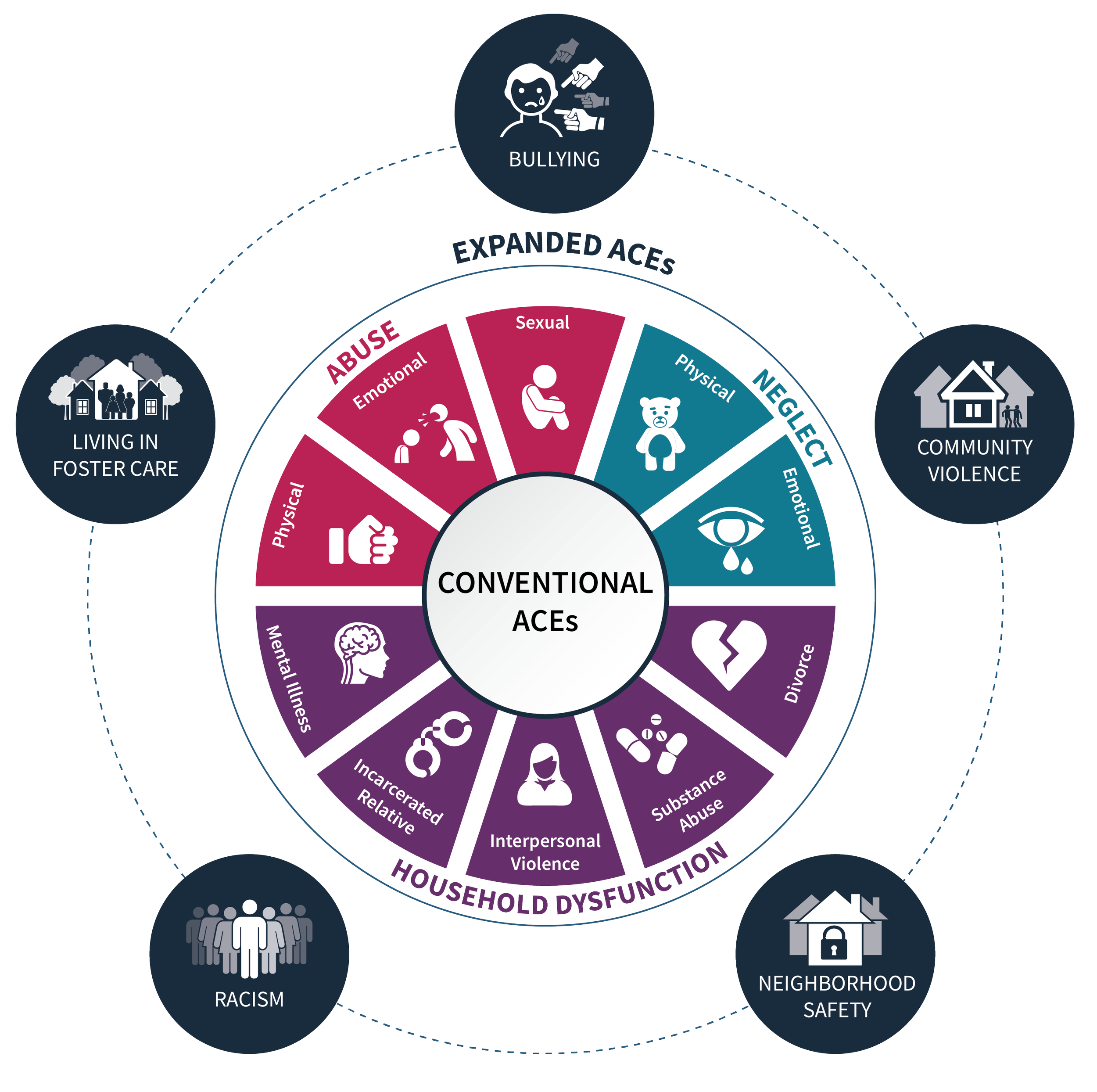ACEs: Why Your Childhood Matters More Than You Think.
Human stress responses can be categorized into three types: positive, tolerable, and toxic.
Positive stress responses are considered to be a healthy part of development (i.e., brief, short-lived elevation in the nervous system).
Tolerable stress responses induce nervous system elevation that is more prolonged; here, the environment becomes crucial. If the tolerable stress is accompanied by supportive relationships, for example, the long-term impact to the nervous system is lessened.
Toxic stress responses create a nervous system that is persistently elevated, whether once for an extended period of time or multiple times to similar degrees.
Childhood toxic stress has been linked to various outcomes in adulthood:
risk-taking, medical conditions, mental health conditions, impaired ability to function, lowered immunity, altered hormonal regulation, changes in DNA, and attachment style, just to name a few.
The weight of childhood toxic stress can be measured by examining ACEs.
What are ACEs?
ACEs are adverse childhood events that occur between the ages of 0 and 17. Initial research showed the most common ACEs to be:
Abuse:
Sexual | Physical | Emotional
Neglect:
Emotional | Physical
Household dysfunction:
Divorced or separated parents | Domestic Violence | Household member engaging in substance misuse | Household member with mental health concerns | Household member incarcerated
Research has also shown that the more ACEs experienced, the greater the chance of the poor outcomes (listed above) later in life.
Original & Expanded ACEs
While the initial ACEs study listed ten adverse events, expanded ACE scales account for many others, such as a mother’s prenatal stress or discrimination.
Below are the original ACE questionnaire and the expanded ACEs awareness scale.
What’s your ACE score?
Expanded ACEs Awareness Scale
Before your 18th birthday, did you experience:
loss of a parent or guardian [as a result of death, deportation, abduction, deployment, etc.]
loss of a close family member or friend [as a result of death, deportation, abduction, deployment, etc.]
serious illness of a loved one
any household violence [actual or threatened]
hostile parents or caregivers [e.g., losing their temper, coercion]
parents’ marital dysfunction [e.g., constantly arguing]
too many children in the home
mother’s prenatal or perinatal stress
anxiety about measuring up [e.g., critical parent(s), feeling you could never please them, high expectations]
abuse [sexual, physical, or emotional] by anyone, or witnessing it
violence in the community, neighbourhood, or school
discrimination [due to disability, race, sexual orientation, place of birth, religion, etc.]
isolation
growing up in poverty
homelessness
living in a war zone
witnessing injury, death, or genocide
terrorism
being kidnapped or abducted
child trafficking; slavery
cults
forced displacement; post-migration hardships
incarceration
being forced into marriage
natural disasters [e.g., earthquakes, hurricanes]
If you have a high ACE score, the next step is reducing the impact of childhood trauma. While many factors contribute to overall healing, seeking help from a mental health professional that guides you through the process can be key.


